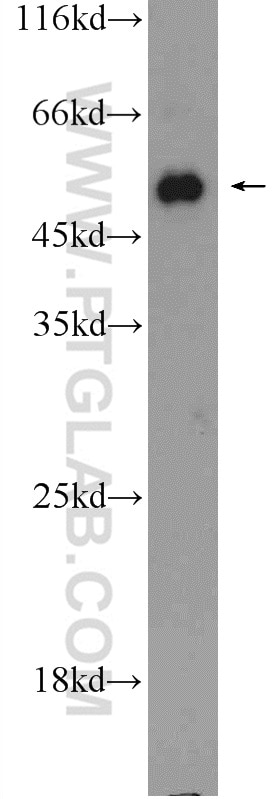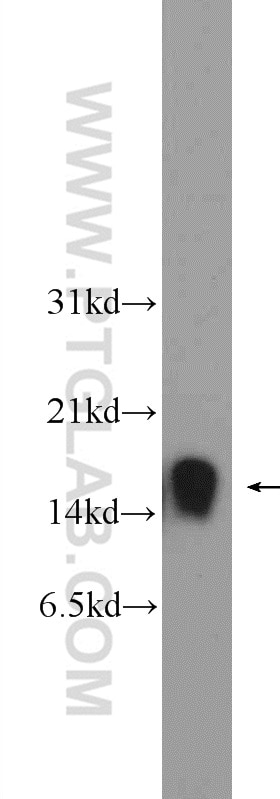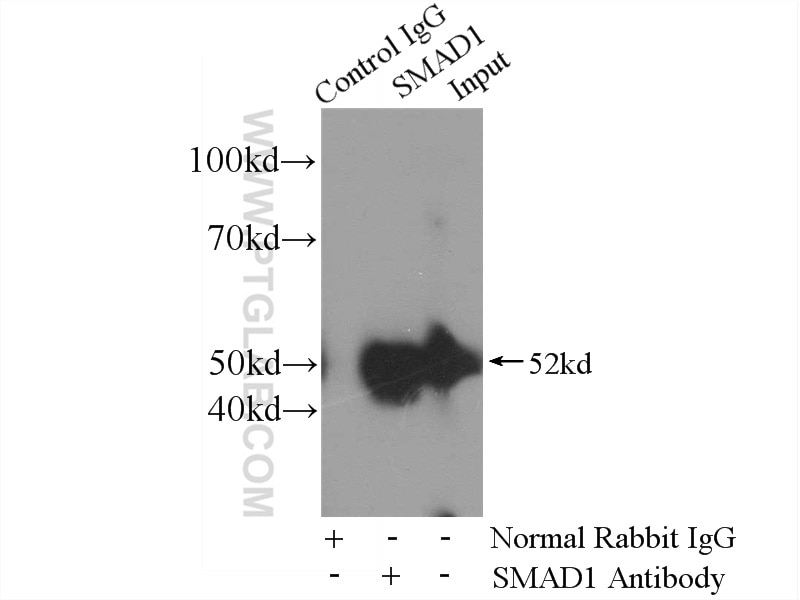Anticorps Monoclonal anti-ACVR1
ACVR1 Monoclonal Antibody for ELISA
Hôte / Isotype
Mouse / IgG1
Réactivité testée
Humain, souris
Applications
ELISA
Conjugaison
Non conjugué
CloneNo.
2G1B1
N° de cat : 60014-1-Ig
Synonymes
Galerie de données de validation
Applications testées
Dilution recommandée
| Application | Dilution |
|---|---|
| It is recommended that this reagent should be titrated in each testing system to obtain optimal results. | |
| Sample-dependent, check data in validation data gallery | |
Informations sur le produit
60014-1-Ig cible ACVR1 dans les applications de ELISA et montre une réactivité avec des échantillons Humain, souris
| Réactivité | Humain, souris |
| Hôte / Isotype | Mouse / IgG1 |
| Clonalité | Monoclonal |
| Type | Anticorps |
| Immunogène | ACVR1 Protéine recombinante Ag1556 |
| Nom complet | activin A receptor, type I |
| Masse moléculaire calculée | 509 aa, 57 kDa |
| Poids moléculaire observé | 57 kDa |
| Numéro d’acquisition GenBank | BC033867 |
| Symbole du gène | ACVR1 |
| Identification du gène (NCBI) | 90 |
| Conjugaison | Non conjugué |
| Forme | Liquide |
| Méthode de purification | Précipitation de l'acide caprylique/du sulfate d'ammonium |
| Tampon de stockage | PBS avec azoture de sodium à 0,1 % et glycérol à 50 % pH 7,3 |
| Conditions de stockage | Stocker à -20°C. Stable pendant un an après l'expédition. L'aliquotage n'est pas nécessaire pour le stockage à -20oC Les 20ul contiennent 0,1% de BSA. |
Informations générales
ACVR1 (activin receptor type I), also known as ALK2 or ACTRI, is a receptor for activin. It forms a stable complex with type II receptor after ligand binding. These receptors are all transmembrane proteins, composed of a ligand-binding extracellular domain with cysteine-rich region, a transmembrane domain, and a cytoplasmic domain with predicted serine/threonine specificity. Type I receptors are essential for signaling, and type II receptors are required for binding ligands and for expression of type I receptors. ACVR1 is expressed in many tissues including skeletal muscle and chondrocytes. It functions as a receptor for bone morphogenetic protein (BMP) and induces Indian hedgehog in chondrocytes during skeletal development. Mutations in ACVR1 gene are associated with fibrodysplasia ossificans progressive (PMID: 16642017).





